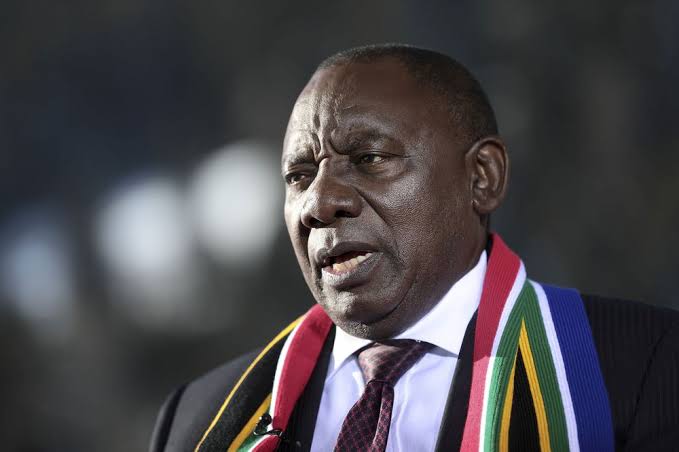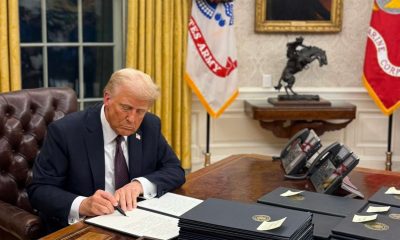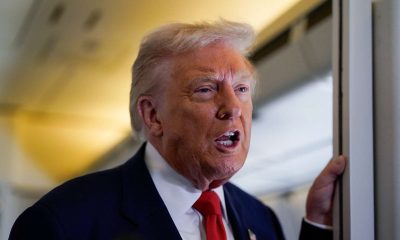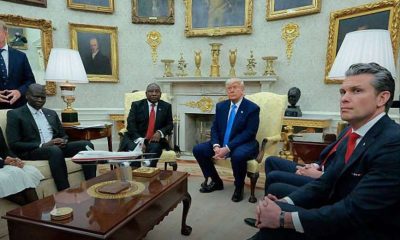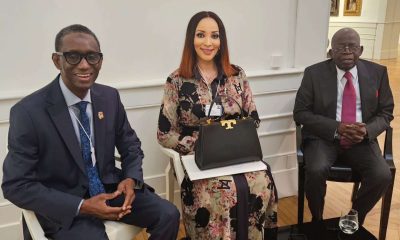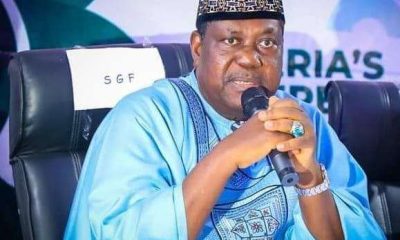Business
Trump confronts Ramaphosa over land Reform, ‘White Genocide’ claims
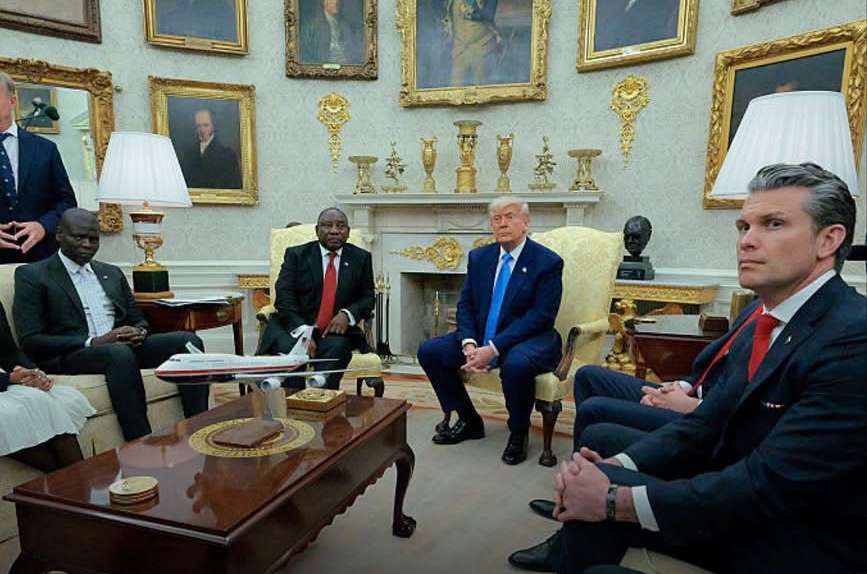
In a tense and politically charged meeting at the White House on Wednesday, U.S. President Donald Trump confronted South African President Cyril Ramaphosa over what he described as “serious concerns” about land seizures, alleged violence against white farmers, and what he has previously termed “white genocide” in South Africa.
The conversation marked the lowest point in U.S.-South Africa relations since the end of apartheid in 1994, drawing attention to the widening diplomatic rift between Washington and Pretoria over human rights narratives, racial politics, and land reform policy.
Trump’s grievances stem from long-held, controversial claims pushed by far-right groups in the United States and abroad, alleging that white South African farmers are being systematically targeted through violent attacks and discriminatory land reform policies.
While these narratives have gained traction in some Western political circles, they have been strongly rejected by the South African government, independent analysts, and major human rights organizations. South Africa’s official data shows that while violent crime and murder rates remain alarmingly high, the vast majority of victims are black South Africans—not white landowners.
During the White House meeting, Trump pressed Ramaphosa on what he called the “dispossession of land from white South Africans” and accused the South African government of stoking racial divisions through what he described as “hateful rhetoric and government actions.”
Ramaphosa Pushes Back
Ramaphosa, calm but assertive, pushed back firmly against Trump’s accusations, insisting that South Africa’s land reform programme is a legal and constitutional effort to redress centuries of racial injustice and inequality entrenched by colonialism and apartheid.
“Our land reform policy is about equity, justice, and economic empowerment, not racial revenge,” Ramaphosa reportedly told Trump. “It is critical for building a more inclusive and prosperous South Africa.”
He emphasized that land expropriation without compensation, though controversial, is being approached through democratic processes, extensive consultation, and legal safeguards.
“We are not targeting any group. We are correcting a historical wrong,” Ramaphosa said, referencing South Africa’s history where a white minority, under apartheid, controlled more than 80% of the land.
Diplomatic Fallout
The sharp exchange comes amid already strained ties between the two nations. South Africa has increasingly aligned itself with the BRICS bloc—Brazil, Russia, India, China, and South Africa—pursuing an independent foreign policy that often clashes with U.S. interests.
Trump’s focus on race-based issues in South Africa also reignites sensitive debates about America’s own racial history, human rights record, and foreign policy priorities under his administration.
“This confrontation illustrates a dangerous willingness to adopt fringe theories into U.S. foreign policy,” said Dr. Noluthando Mkhize, a political analyst at the University of Cape Town. “It also reveals a deeper ignorance of South Africa’s complex socio-economic transformation.”
Meanwhile, South African officials and diplomats expressed frustration at what they described as a reductionist view of a nation still grappling with the legacy of apartheid, inequality, and poverty.
A Fractured Relationship
Bilateral ties between South Africa and the United States have historically been shaped by mutual interests in trade, education, health cooperation (particularly around HIV/AIDS), and regional security.
However, since Trump took office, Pretoria has voiced growing concern about Washington’s unilateralism, especially its approach to global institutions, climate change, and human rights. Trump’s administration, in turn, has viewed South Africa’s domestic policies—especially land reform—with suspicion.
For South Africans, the encounter underscores the challenge of pursuing transformative justice while maintaining strong international partnerships. For Americans, it revives questions about whether their president is prioritizing diplomacy or ideological narratives.
As the meeting ended, both sides issued guarded statements reaffirming their commitment to dialogue, but analysts believe the damage may already be done.
“South Africa will not be dictated to on how to resolve its own historical injustices,” said Ramaphosa in a post-meeting press conference. “We welcome friendship, but not fear-mongering.”
Whether Wednesday’s confrontation will mark a turning point or a new nadir in U.S.-South Africa relations remains to be seen. But what is clear is that global perceptions—and misperceptions—about race, land, and justice continue to cast long shadows over diplomacy.


